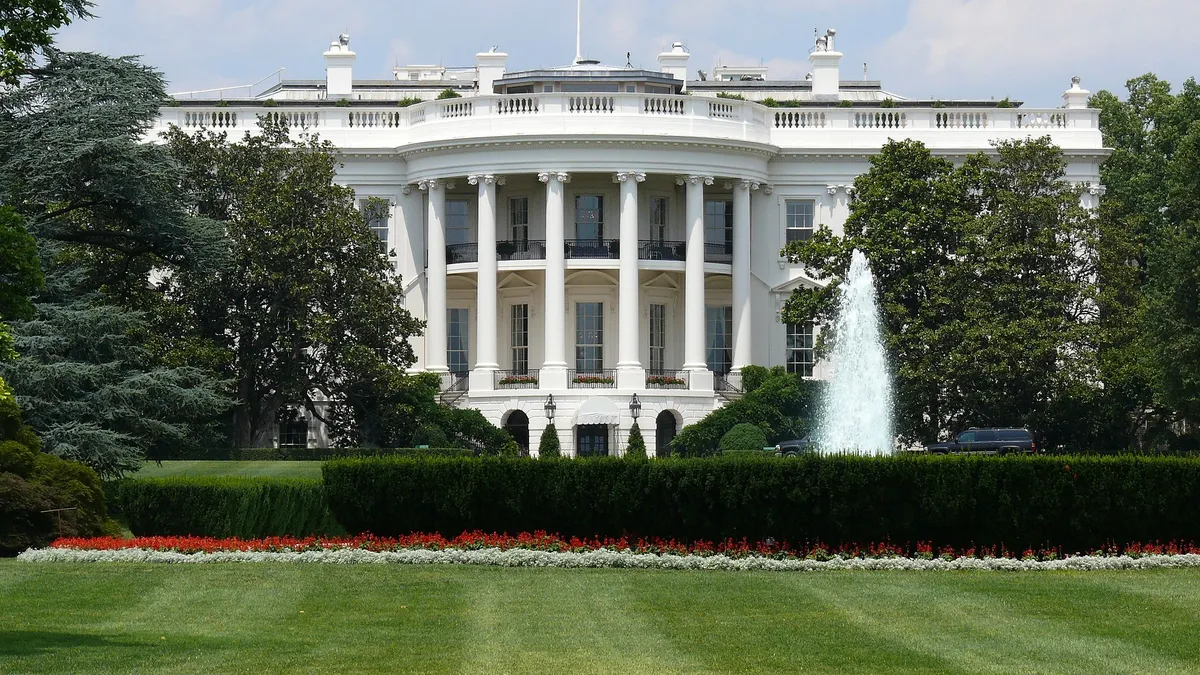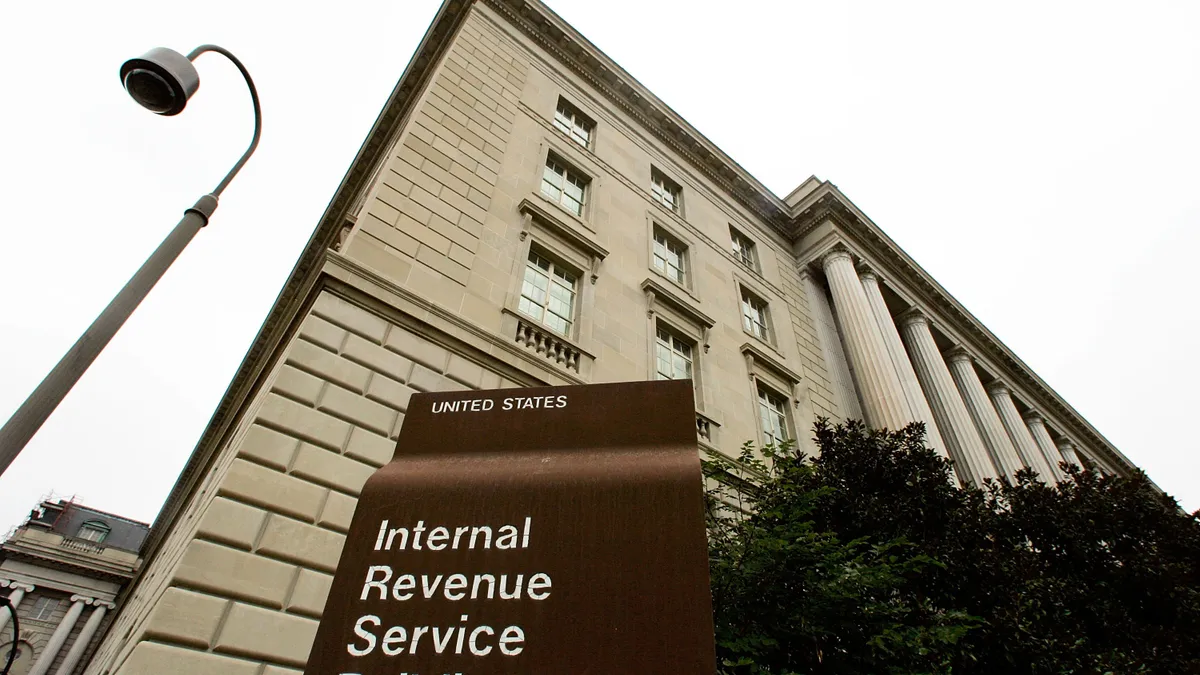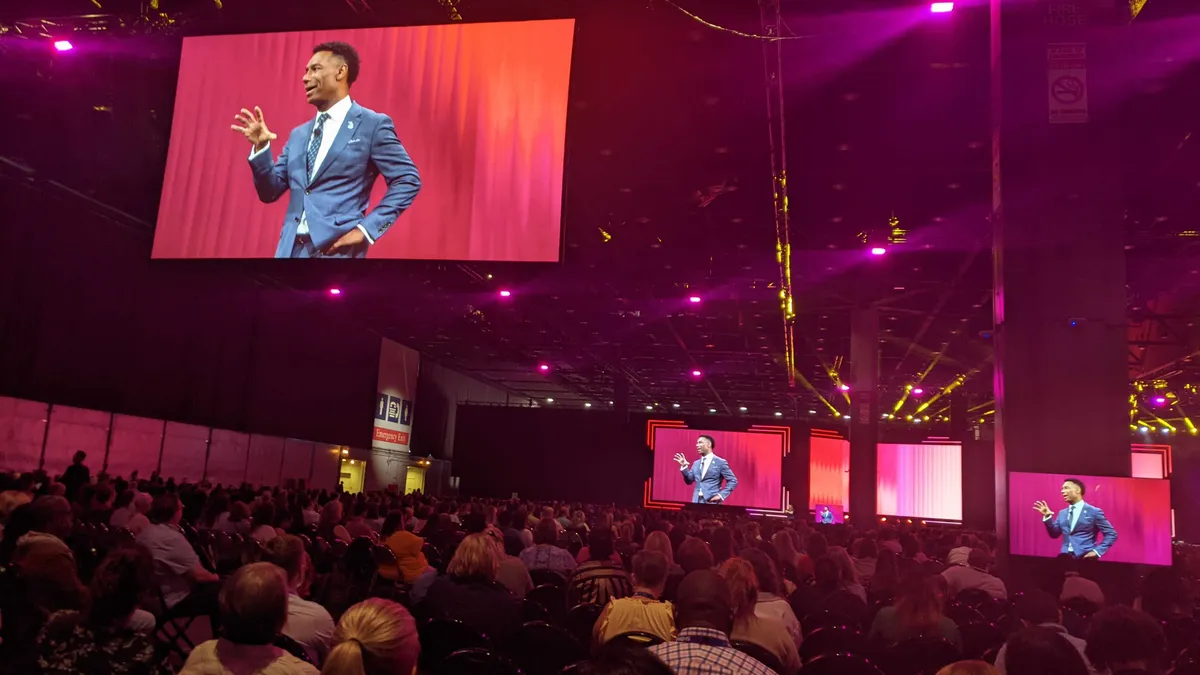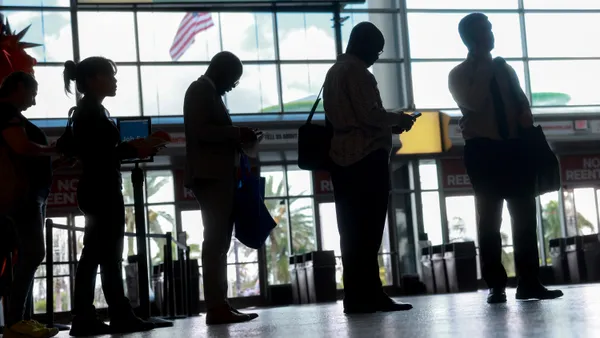Dive Brief:
- The NAACP Legal Defense and Educational Fund, Inc., (LDF) filed a lawsuit Oct. 29 challenging President Donald Trump's Sept. 22 "Executive Order on Combating Race and Sex Stereotyping," claiming the order is a violation of the First Amendment's protection of speech (National Urban League and National Fair Housing Alliance v. President Donald J. Trump, et al., No. 20-cv-03121 (D.C. Oct. 29, 2020)). The complaint also alleged the order is in violation of the Fifth Amendment because it is "unconstitutionally vague" and "fails to provide fair notice of what conduct it requires from the plaintiffs."
- The executive order prohibited what Trump referred to as "divisive concepts," such as the discussion of race stereotyping, systemic race and sex discrimination and implicit race and sex biases from being included in diversity training programs run by federal agencies, U.S. uniformed services and recipients of federal grants. Federal contractors and subcontractors are subject to the terms as well.
- The primary plaintiffs, the National Urban League (NUL) and the National Fair Housing Alliance, "are federal contractors and recipients of federal grants," Janai Nelson, associate director, counsel at LDF, said during a video press conference Oct. 29. "Because of the executive order, their ability to contract with the federal government is in jeopardy," Nelson said. There is a "foreseeable certainty" of the executive order's "disparate impact on people of color, women and LGBTQ individuals," according to the complaint. The plaintiffs requested the court declare the executive order unlawful and invalid; permanently enjoin the order; and award the plaintiffs the costs of filing the lawsuit and legal fees.
Dive Insight:
Even private companies are worried about the impact of Trump's executive order, and thinking of curtailing recently launched diversity and inclusion initiatives, according to civil rights advocates.
"The National Fair Housing Alliance has very extensive training and consulting programs," Lisa Rice, president and CEO of the organization said during the press conference. Its services are provided to financial institutions and companies in the housing sector, Rice said. Many financial services institutions are regulated by federal agencies who are impacted, directly or indirectly, by the executive order, Rice explained.
"We have had a number of very clandestine, confidential conversations with industry stakeholders who are concerned about negative fallout if they proceed in a very public fashion with some of the racial equity initiatives and efforts that they wanted to undertake in the aftermath of George Floyd's murder," Rice said. Amid national protests, many released public statements and made announcements of "comprehensive programming and investments to address racial equity," she said.
"We are hearing from some of them that they are getting calls and questions about the way they're phrasing things, and how they're describing the programs that they want to undertake," Rice said. And those fears aren't necessarily unfounded: The U.S Department of Labor's (DOL) Office of Federal Contract Compliance Programs recently sent inquiries to major companies including Wells Fargo and Microsoft questioning whether the employers' announced diversity and inclusion plans violate Title VII of the Civil Rights Act of 1964.
The U.S. Chamber of Commerce wrote a letter to Trump Oct. 15, urging the president to withdraw the executive order. "We fear that the [executive order] will diminish the amount of training that takes place" and "we have heard from some companies that they are suspending all D&I training," the letter said.
"Because so many companies are worried about the eventual impact of this order, some of them are taking prophylactic measures to shut down training or anything that might eventually come into the cross hairs of this administration or any other subsequent effort to enforce this," Kimberlé Crenshaw, executive director of The African American Policy Forum, said. Due to the vague nature of the order, private companies that seek to do business with the federal government could be subjected to the mandate, Crenshaw, a professor of law at UCLA and Columbia University, added.
"This executive order seeks to chill the very essence of what the National Urban League was founded to do," Marc Morial, president and CEO of the organization, said at the press conference. NUL was considered a subject matter expert regarding issues of diversity, equity and inclusion to qualify for a federal apprenticeship contract, according to the complaint. NUL claimed in the lawsuit that after a "positive relationship for almost four years" with the federal government, in September, DOL "extended the contract only until Dec. 31, 2020 instead of Sept. 20, 2021, as was an option in the contract."
Some diversity programming for federal employees has already been canceled. "The Environmental Protection Agency had a group of LGBT employees [who] started organizing a pride event before COVID struck," Sterling Cruz-Herr, founder of TransClue, a transgender-owned training and consulting company, said. The employees spent months promoting and building momentum around the event, "only to find out the event was canceled," Cruz-Herr said. The event scheduled for Oct. 7, but was canceled following the executive order, HuffPost reported.
"This is far too urgent for us to wait until the outcome of an election," Nelson said. "Primarily because the outcome of the election will not, in and of itself, rescind this order, no matter who is elected. This is an executive order signed by a president that will stay in effect until it is rescinded either by Trump or by his successor."















